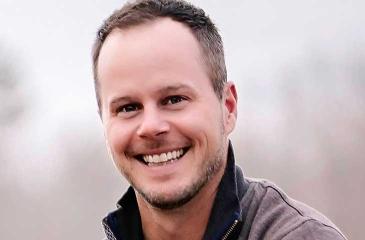In 2021, three community leaders from rural Minnesota were selected as the inaugural cohort for Project REACH (Rural Experts Advancing Community Health), a joint initiative of the University of Minnesota Rural Health Program through the Office of Academic Clinical Affairs and the Clinical and Translational Science Institute.
Project REACH is a year-long program that provides diverse community leaders in rural Minnesota with health policy and leadership training. Participants learn to frame health policy challenges and how to communicate effectively with state legislators and other policymakers. Participants identify local challenges, build leadership skills to address the challenge, and develop and share a policy proposal with relevant decision makers. Throughout the program, participants have access to mentorship from University of Minnesota faculty and staff.
Adam Pavek, PharmD, one of the three inaugural members of the Project REACH cohort, is a pharmacist from northern Minnesota and serves as pharmacy director for IMCare, a locally managed care organization serving over 9,000 members of Itasca County. Pavek was born in Bemidji, grew up in Roseau, and currently lives in Grand Rapids. Over the past 15 years, his diverse experience has ranged from serving as a practicing pharmacist to shaping policy for commercial, Medicaid and Medicare programs. Pavek has served in clinical and administrative leadership roles with the Minnesota Department of Human Services and UnitedHealth Group, in collegiate academics at the University of Minnesota, and in retail pharmacy services with Walgreens and Supervalu. This diverse experience has given him a unique perspective on the industry, where he has found a particular affinity for serving smaller rural health plans and health systems.
As part of his work with Project REACH, Pavek created a policy proposal focused on impacting maternal health outcomes for Indigenous women in Itasca County. Throughout the program, Pavek met with a number of stakeholders in his community and across Northern Minnesota, including Itasca County commissioners, Itasca County Health and Human Services, and Itasca County Medical Care, Blandin Foundation, Velocity Consulting, the University of Minnesota’s School of Public Health and College of Pharmacy, Duluth, and tribal elders from Leech Lake, White Earth, Fond du Lac, and Red Lake.
Related to his policy problem on maternal and infant morbidity and mortality, he has improved the tracking process for Itasca County's healthy pregnancy program, reporting and engaging with tribal providers, members, local providers and OB GYN groups, and enhanced program participation to improve maternal and infant health outcomes. Due to his Project REACH experience, he has been appointed to lead the DEI Workgroup for Itasca Medical Care. The workgroup is tasked with developing a strategic plan to ensure staff and providers learn and work in environments that promote equity and inclusion and enhance cultural competency, community engagement, access and opportunity for staff, members and community partners.
“Project REACH was a golden opportunity for me and small rural communities like mine to leverage the expertise of the University of Minnesota to help create policy and programs that will improve equity, inclusion and outcomes in rural Minnesota health care,” said Pavek



